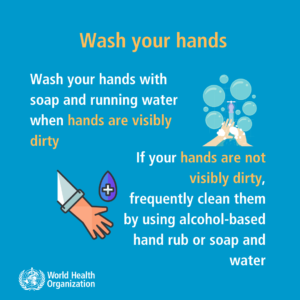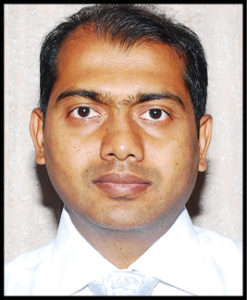Hand washing is a simple habit that can help every one to keep healthy.Good hand hygiene is essential to prevent the spread of corona virus and other infections.


The Dangers of not washing your hands:
Despite the proven health benefits of hand washing, many people don’t practice this habit as often as they should — even after using the toilet. If you don’t wash your hands frequently, you can infect yourself with germs by touching your eyes, nose or mouth. And you can spread these germs to others by touching them or by touching surfaces that they also touch.
Infectious diseases that are commonly spread through hand -to-hand contact; include the common cold, flu and several gastrointestinal disorders,- such as infectious diarrhoea. While most people will get over a cold, the flu can be much more serious. Some people with the flu, particularly older adults and people with chronic medical problems, can develop pneumonia. Inadequate hand hygiene also contributes to food-related illnesses, such as salmonella and E.coli infection. Others experience the annoying signs and symptoms-of nausea, vomiting and diarrhoea.
Proper hand washing techniques:
Good hand washing techniques include washing hands with soap and water or using an alcohol-based hand sanitizer. Antibacterial soaps have become increasingly popular in recent years. However, these soaps are no more effective at killing germs than is regular soap. Alcohol –based hand sanitizers – which don’t require water -are an excellent alternative to hand washing, particularly when soap and water aren’t available.
1. Wet your hands with warm, running water and apply liquid soap or use clean bar soap. Lather well.
2. Rub your hands vigorously together for at least 15 to 20 seconds.
3. Scrub all surfaces, including the backs of your hands, wrists, between your fingers and under your finger nails.
4. Rinse well.
5. Dry your hands with a clean or disposable towel.
When should you wash your hands?
Although it’s impossible to keep your bare hands germ-free, there are times when it’s critical to wash your hands to limit the transfer of bacteria, viruses and other microbes.Always wash your hands:
1. After using the toilet
2. After changing a diaper – wash the diaper-wearer’s hands, too
3. After touching animals or animal waste
4. Before and after preparing food, especially before and immediately after handling raw meat, poultry or fish
5. Before eating
6. After blowing your nose
7. After coughing or sneezing into your hands
8. Before and after treating wounds or cuts
9. Before and after touching a sick or injured person
10. After handling garbage
11. Before inserting or removing contact lenses
12. When using public restrooms, such as those in airports, train stations, bus stations and restaurants
Kids need clean hands, too:


Dr Ignaz Semmelweis was the first to suggest that doctors wash their hands to prevent spread of diseases. His theory was rejected, he was disgraced and he died in an asylum in 1865.


Dr. Chalapathy
Professor of General Surgery
Vydehi Hospital
Whitefield, Bangalore – 66
Ph: 080-28413381/2/3/4
www.vims.ac.in











